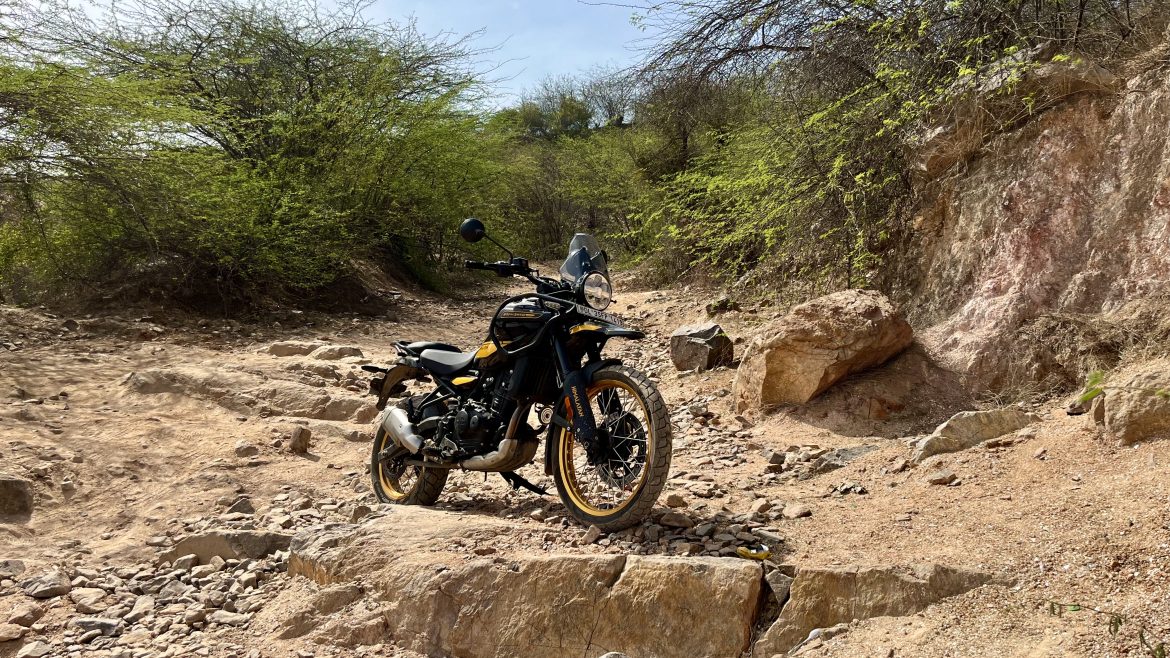Adventure motorcycles have caught on the bandwagon of the Indian automotive landscape surprisingly well. After all, the growth of this segment has made Honda break its slumber and grab a clean sheet of paper to draw an adventure tourer, which shares an uncanny resemblance to one of India’s most popular off-roaders — the OG Royal Enfield Himalayan. However, our motive for today is on a different tangent. A new Royal Enfield Himalayan has come to town, promising some astonishing improvements over its predecessor. Yes, we are late to get our hands on the new Himalayan but since we have gotten one, we decided to make this opportunity worthwhile.
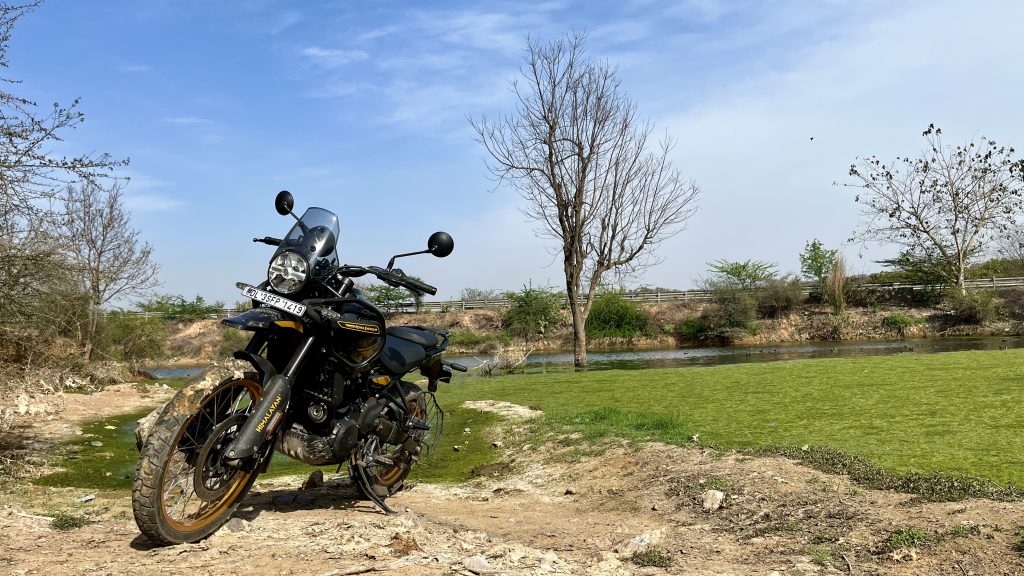
Riding a Himalayan on a smoothly laid out asphalt is like driving a Ferrari LaFerrari in a country field — it may seem cool but doesn’t make any sense. It was pivotal for us to take the Himalayan to its natural habitat to explore its increased potential and see how well it translates when the going gets tough. So we planned to take the new Himalayan from our base in Noida to the Aravali Hills in Gurgaon.
While the trails were vivid in our heads, we had to cover some 50-odd kilometres for the salivating experience. The roads leading from Noida to Gurgaon are smooth, wide and well laid out. This allowed us to let the Himalayan stretch its limbs on the freeway. Upon crossing 80kmph, the engine channelled some serious vibrations to the foot pegs, handlebars and rearview mirrors. When we mention serious, we mean blurred rear view from the mirrors and pulsating fingers after riding.
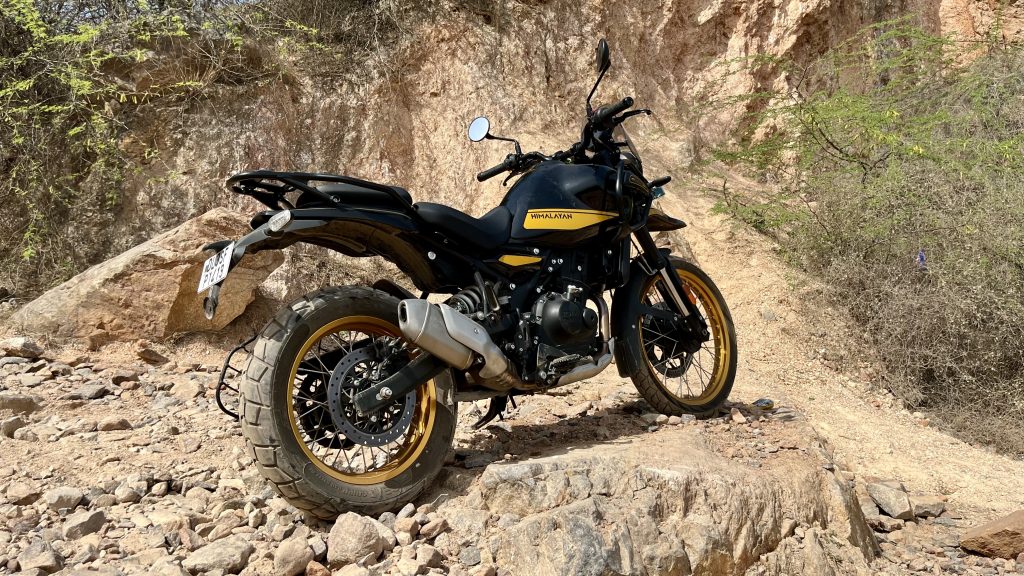
The vibrations on the new Himalayan are better contained than its predecessor, but not a remarkable improvement as a whole. This serves as the only chink in its armour to become an impressive touring machine, boasting a comfortable seat, relaxed riding position and a tall handlebar. The new Sherpa engine feels energetic and full of character and accompanies the surge of power with a deep growly exhaust note. Given our ride took place on a pleasant afternoon, heat dissipation was not an issue but the engine did feel warm in stop-and-go traffic. How the engine heat is dissipated in peak Delhi summer is something that we will find out later.
Navigating through the afternoon traffic and buzzing high-speed runs, we managed to reach the destination in Gurugram. The road leading to the base for the trail adventure is a winding section, boasting a handful of flowing corners, which enables you to play on the edge. With the 21-inch wheel piloting the Himalayan up front, we kept the expectations around the bends within limits. Nonetheless, the Himalayan didn’t feel lazy when leaned in, which may come across as a given for an adventure motorcycle. The handling turned out to be predictable and confidence-inducing.
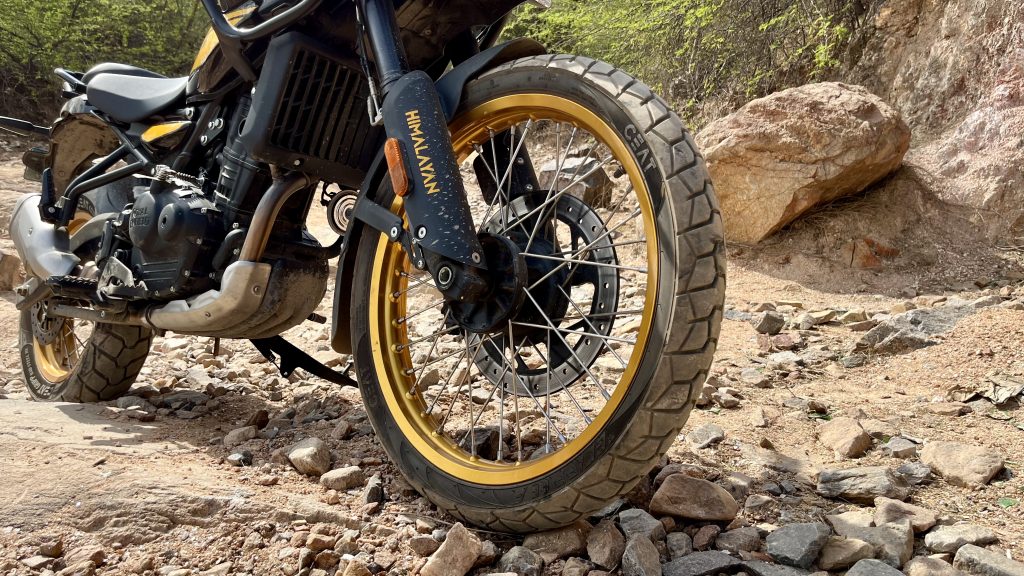
Now, it was time to ride on the trails and have some fun. The Himalayan doesn’t have any fancy electronics (read traction control) but it allows you to switch off the rear ABS and also choose between performance and eco modes. The difference between the two modes is negligible and it’s more to do with the throttle response rather than outright performance. As a standard practice, both front and rear tyres were slightly deflated to tackle loose surfaces with ease.
The trail began with a steep incline full of stones and rocks. Navigating through them without bashing the underbelly was imperative. Going calmly on the throttle was also important to contain unnecessary wheel spin. The eco mode with its relatively calmer throttle response helped in modulating the power headed to the wheel.
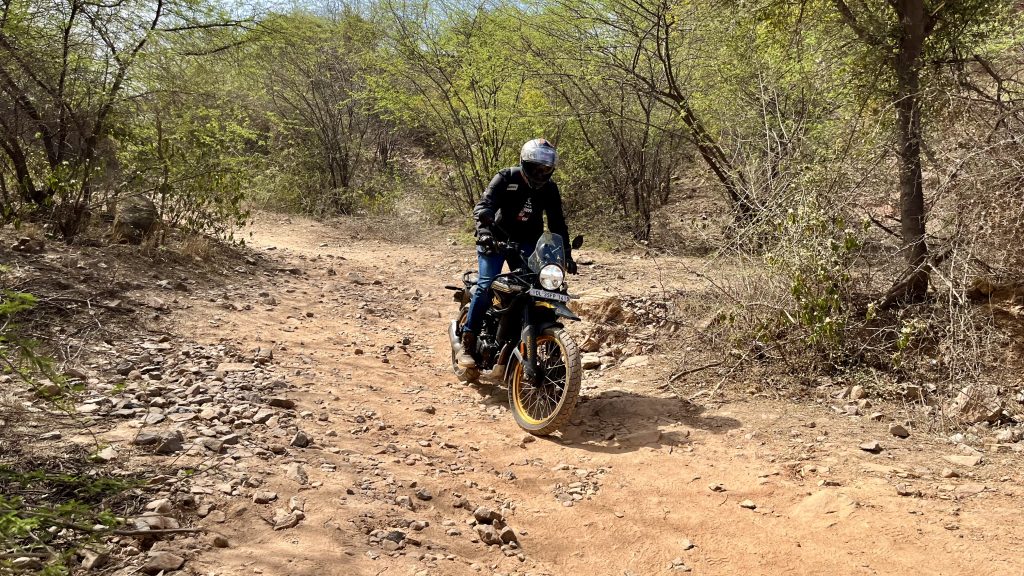
The centre-set footpegs on the Himalayan offer a likeable placement to firmly place your feet and stand up, which helps in moving the weight to the front wheel on a steep incline thereby increasing stability. As we crossed the incline section, the path became narrower with large craters awaiting our clumsy manoeuvres. The 21-inch front wheel of the Himalayan is hard to pilot but thanks to its sheer diameter, it eats potholes and bumps for breakfast and deals with uneven surfaces with ease.
The front wheel stands above everything — be it a crater or a curvaceous rock. The problem comes up with the rear wheel, which occasionally struggles to maintain grip and starts spinning. We found ourselves in such a situation multiple times. Moving the motorcycle back and forth and transferring the weight helped to tackle the situation. The humongous 230mm ground clearance ensured that we, knowingly or unknowingly, do not bash the underbelly against an object and mark a full stop to the adventure.
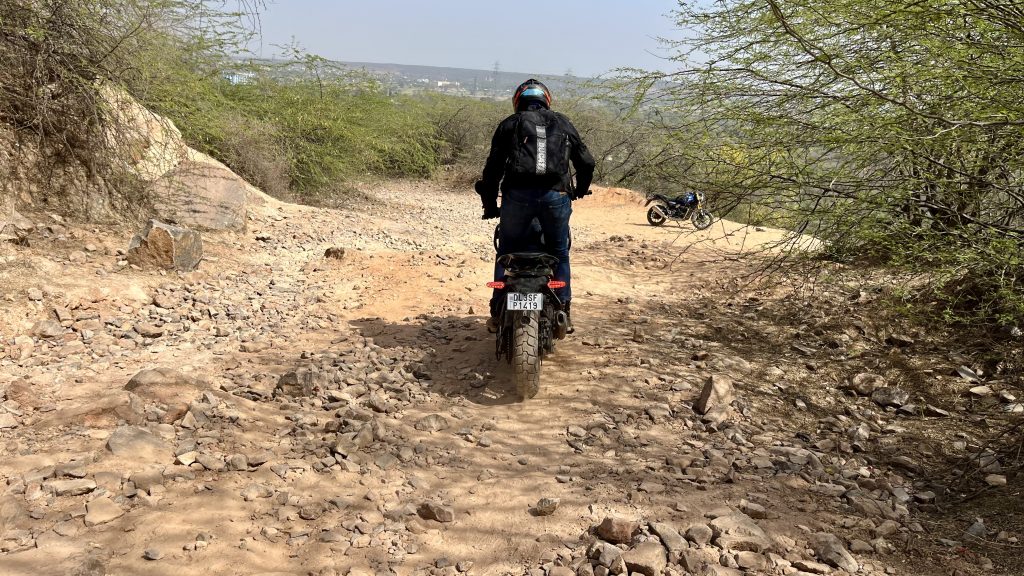
Among all these things, the most impressive thing about the new Himalayan is its ride quality, which deals with everything with utmost finesse. We have seen motorcycles with impressive ride quality but the new Himalayan floats above everything and keeps you oblivious of the road surfaces, as if you are sitting on a magic carpet. Its well tuned suspension along with long travel helps tremendously on poor surfaces. Nothing upsets its composure and the force from the impact is hardly translated to your body, given that you are sensible with your inputs.
However, it is not perfect. The one downside that is felt right from the start is the relatively poor low-end torque from the new Sherpa engine. While it impresses with its high-revving nature and peaky power delivery, its demeanour feels out of place at lower speeds. The lousy low-end response changes to lurching momentum with minimal throttle input and modulating your wrist becomes a task, especially on loose surfaces. In addition, the 2nd gear struggles to keep the engine going below 20kmph and it starts to judder or even worse, stall in some instances. The earlier Himalayan fared considerably better in this regard.
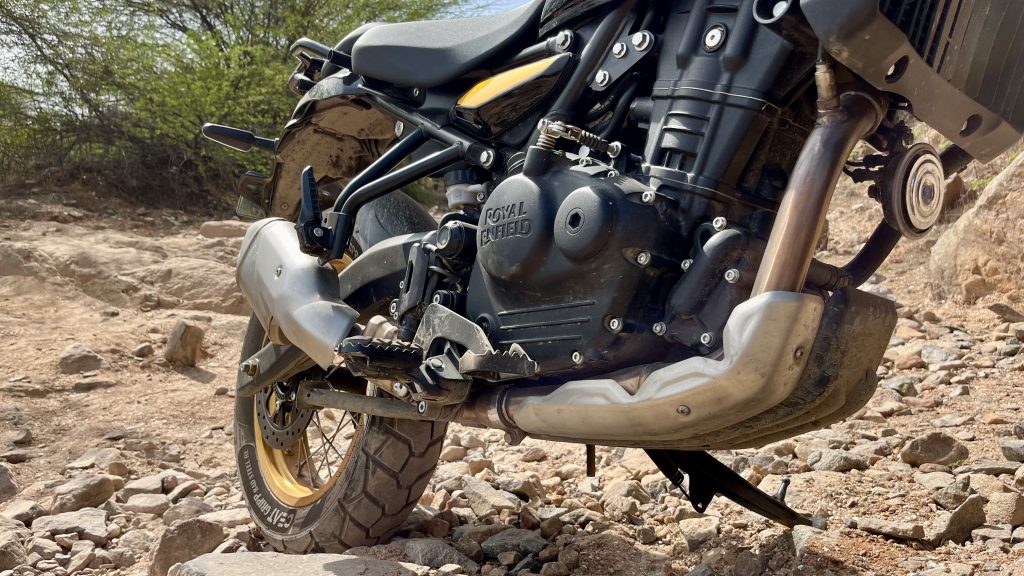
Broadly speaking, the new Royal Enfield Himalayan has taken a leap in overall perceived quality and performance. It continues to feel rough around the edges and there is a big scope for improvement in certain areas. Dialling down the vibrations and amping up the torque delivery towards the lower end of the rev band would have made the Himalayan a perfect adventure tourer machine.
In addition, features like traction control and cruise control would have also improved its touring capabilities, since most Himalayan owners use their motorcycles for touring. Nonetheless, as things stand today, the Himalayan remains to be one of the most capable adventure motorcycles on sale and the one boasting true GOAT (go over any terrain) capabilities.

